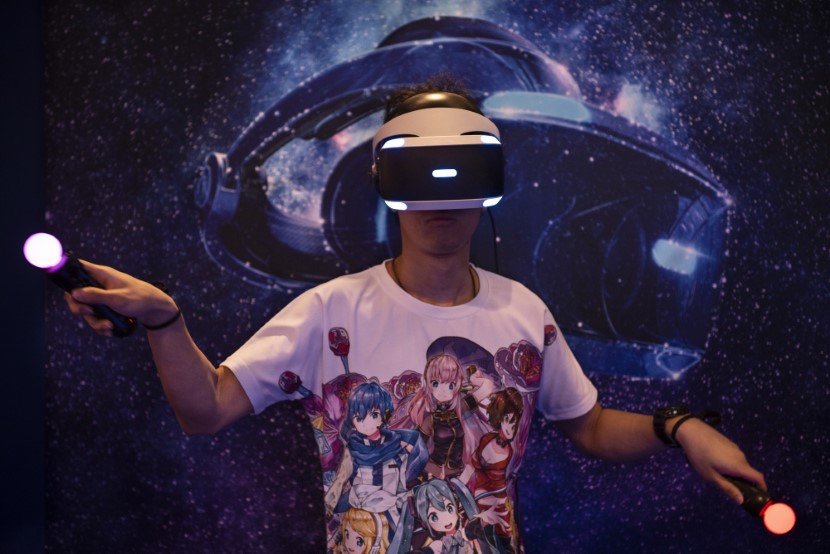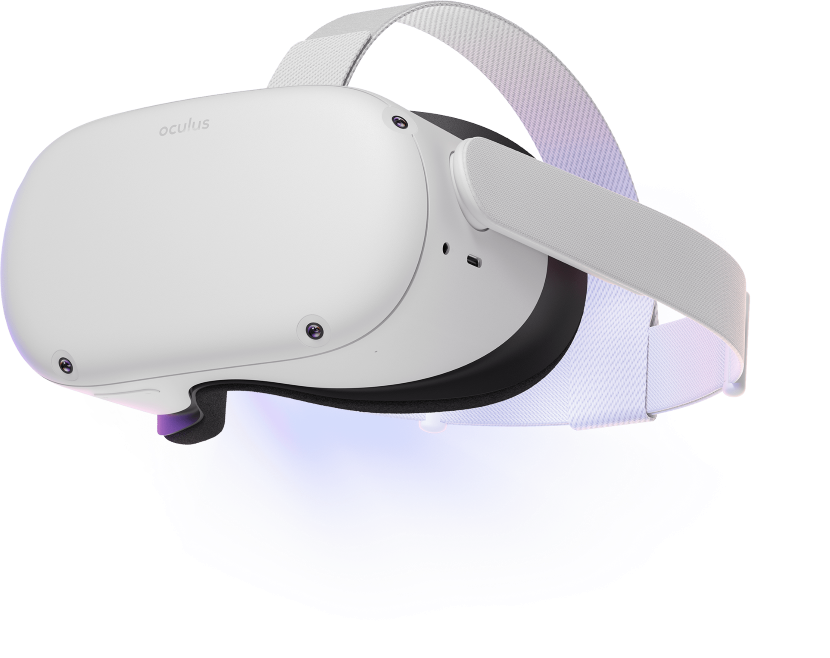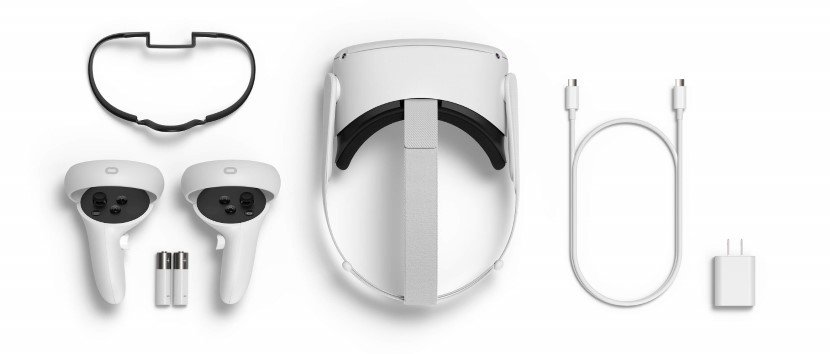Facebook VR wants to change the world, but will the public accept it?
Facebook jumps in the Virtual Reality industry to bring Facebook VR to the people; having both pros and cons, social media VR is a very new concept.
Lately, Facebook Inc. has been working very strongly on expanding its services; after buying widely used social media platforms like WhatsApp and Instagram, Facebook now also has a virtual reality branch under its “Facebook Reality Labs” title. Before Facebook bought it, Oculus was a company focused on the production of VR headsets and other gaming equipment. They started as a Kickstarter project in 2012 and worked their way hard into the tech industry and very soon became one of the strongest players among the Virtual Reality hardware producers and sellers. In 2014, Facebook Inc. bought Oculus for 2.3 Billion USD and everything went quiet for a little while until the Infinite Office VR Workplace and Oculus Quest were released.
Now, however, recently on 16th September 2020, Facebook announced the release of the new all-in-one Facebook VR headset, the Oculus Quest 2.
Facebook calls the Oculus Quest 2 the next generation of the all-in-one VR headsets. Next-gen graphics, ultra-fast processors, high quality sound service; the Oculus Quest really sounds like it’s a breakthrough futuristic technology, but is it really safe, secure and a good idea? Read on till the end.
Contents
What is Virtual Reality(VR)?
Virtual Reality is a computer technology that creates artificial and simulated environments for the users to experience. This is like a step forward from the 3D televisions. Virtual reality technology works by allowing the users to wear special VR headsets that are fitted with head mounted displays or HMDs that act as the major gateway between the simulation and the user’s brain.

A term commonly confused with VR is AR or Augmented Reality. While very similar, augmented reality, unlike virtual reality isn’t wholly a simulation and combines the real world and the simulated world. It also incorporates cameras and enhances the real world that the camera captures.
Oculus Quest 2 – Product Details
The Oculus Quest 2 is a step further from the original Quest headset which was released in 2019. It is loaded with innovations and upgrades. The Quest 2 fits in itself a Qualcomm® Snapdragon™ XR2 processor with an AI capability. There is a 6GB RAM and a choice between 64GB and 256GB storage. The display is an HD 1832 x 1920 pixels for each one of the two eyes – this is a 50% upgrade from the previous original Quest.


The graphics processing systems are higher than ever before and Oculus users can now run applications at 90Hz comfortably. These added applications include Home Environment, Explore, Store, Browser and Oculus TV if you’re opting in via the Experimental features. These can be activated by going to the Experimental Features section in Settings and toggling the new features on.
There is also the Oculus Insight tracking system coming from the original Quest. This system studies the articulate real-time positions of the user at every single millisecond and translates them into its system to give a strong VR experience.
The touch controls have also been updated for comfort and better usage alongside the installation of a battery with a 4 times better battery life than that of the Oculus Quest.

The Quest 2 will run VR games like Star Wars: Tales from the Galaxy’s Edge, Myst, Jurassic World Aftermath, Warhamme and 40,000 Battle Sister, Pistol Whip: 2089, The Climb 2, Rez Infinite etc. More games can be checked out here.
The Oculus Quest 2 can be preordered from the Oculus website for a price which is $100 less than that of the original Quest.
Facebook and the Oculus
The big question ever since 2014 has been “What has Facebook got to do with Virtual Reality systems?” Facebook Inc. has no connection with games, so why would a company with such an established persona in social media buy a VR hardware company when they haven’t even launched or ever announced anything related to gaming?
In 2014 Mark Zuckerberg said that Facebook doesn’t plan to make money selling VR headsets. “We’re clearly not a hardware vendor,“, “We’re not going to try to make a profit selling the devices, long-term. We view this as a software and services thing.” Facebook VR planning is focused towards the development of a “social computing platform”. For Facebook, VR is similar to the social media jumps we’ve had from text-based communication to photo and then video based communications. For Facebook, VR is what comes next in line, and this sounds fairly logical as VR connects people more strongly and gives them more real and life-like experiences than other previously known online communication channels.

The potential applications for Facebook VR would cover entertainment, education and connecting with friends and family. The way VR brings foreign environments to users makes it very useful to address to such requirements.
The introduction of VR to the social media scene is still a project that is being worked on but its introduction to the industry might be much sooner than we expect.
Zuckerberg on Facebook VR to Facebook AR
While Zuckerberg, in an interview with The Verge, did say that the pandemic got him thinking how VR had a much larger scope compared to AR despite most tech companies believing otherwise, Facebook also and still plans on continuing towards AR too and that their VR systems will build up to AR systems. He said, “A lot of people think that AR is the thing that matters, and VR is this niche, smaller thing. My outlook on that has shifted. I actually think VR is going to be quite important for people, too. And over the next few years, I think it’s going to just grow significantly faster. So I’ve always been focused on both. But I think I’m maybe even a little more optimistic at this point than I was before seeing how people use it during lockdowns.”
Is the Facebook VR set-up really safe?
For a company like Facebook, that has been involved in multiple major consumers’ privacy crime violation scandals, privacy and security online would be a major concern for new customers especially given how large amounts of data VR collects.
To provide its users seamless experiences, VR needs to track a lot around you and within you. According to Jeremy Bailenson, VR expert and founder of the Virtual Human Interaction Lab (VHIL) “…commercial VR systems typically track body movements 90 times per second to display the scene appropriately, and high-end systems record 18 types of movements across the head and hands. Consequently, spending 20 minutes in a VR simulation leaves just under 2 million unique recordings of body language” – he discusses this in his paper which can be accessed here. This large and very real-data belongs to the consumers and it’s violation might bring Facebook some serious damage, as what happened last year when Facebook had pay, the highest ever imposed for consumer privacy, violation fine of $5 billion to settle the down the concerns. None of these scandals have, however, stopped Facebook from continuing on with the privacy breaches.
Another very major and concerning issue is that to access the Facebook VR system through the Oculus Quest 2, the users will have to sign in through their Facebook accounts. This has already compromised users data multiple times in the past and Facebook is fairly notorious for it, and they also haven’t done anything to address the issues besides paying their fines.
To prevent privacy issues with the Oculus Quest 2, Germany has already temporarily banned the device’s sale under the country’s antitrust regulations.
Technology still has to travel a very long distance into the future and these advancements surely will bring many positive factors but might also demand us to pay with our private data.